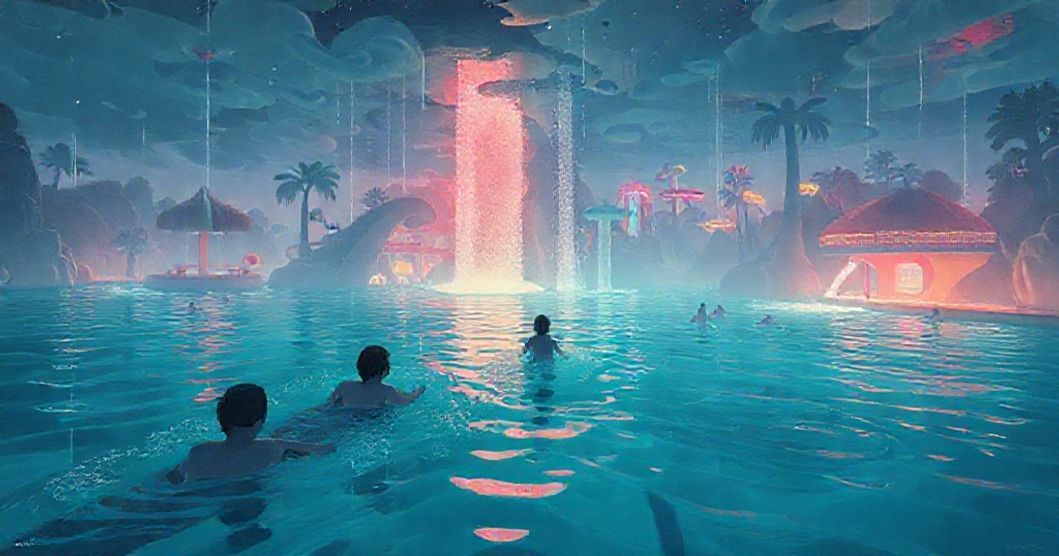The Recurring Waterpark Dream: Navigating Vitality, Abandonment, and the Unconscious
Part 1: Dream Presentation
Dreams often serve as portals to our deeper emotional landscapes, and few recurring images carry as much layered meaning as waterparks—spaces designed for joy and release, yet capable of evoking profound contrast between vitality and decay. Over eight years, this dreamer has encountered four distinct waterpark dreams, each with striking thematic shifts, alongside a potential fifth dream set in a water-rich environment from the game Bioshock: Rapture. This recurring aquatic imagery invites exploration into the subconscious mind’s language of emotional states, life transitions, and unresolved themes.
Rewritten Dream Narrative
Over eight years, I’ve experienced four distinct dreams set in waterparks, each with striking contrasts yet sharing a recurring aquatic environment. The first two dreams unfolded in vibrant, active waterparks adorned with lush jungle themes—towering palm trees framed winding water slides, cascading waterfalls created rainbow arcs in the sunlight, and children laughed as they splashed in wave pools. In these dreams, I felt a sense of carefree freedom, navigating the park with friends and family, though the specific rides and layouts varied dramatically. One featured a giant octopus-shaped water slide; another had a lazy river winding through artificial jungle foliage. These scenes buzzed with life, the sound of rushing water mixing with cheerful chatter.
Want a More Personalized Interpretation?
Get your own AI-powered dream analysis tailored specifically to your dream
🔮Try Dream Analysis FreeThe last two dreams, however, depicted the same waterparks in a state of eerie abandonment. The once-vibrant jungle themes had faded—overgrown vines choked the structures, rusted metal glinted through cracked paint, and stagnant water pooled in forgotten pools. No laughter echoed; instead, the silence felt oppressive, broken only by the occasional drip of water or distant bird calls. In these dreams, I wandered alone or with strangers I didn’t recognize, my movements heavy with uncertainty. The water itself seemed different here—still, murky, and lacking the playful energy of the earlier dreams.
Adding to this pattern, a potential fifth dream emerged: I found myself in Rapture, the underwater city from Bioshock, surrounded by water. The atmosphere was dim and dystopian, with cracked glass and decaying architecture, yet the water remained omnipresent—both beautiful and threatening, just as in the waterpark dreams. Here, too, I felt a sense of isolation, though the water carried a different emotional weight than in the active or abandoned parks.
Across all these dreams, the waterpark settings shift between dynamic vitality and silent decay, yet water remains the constant element. The recurring theme feels like a puzzle piece I’ve been trying to understand for years, with each dream offering a new angle on my inner world.
Part 2: Clinical Analysis
Symbolic Landscape: Water, Parks, and Jungian Archetypes
The recurring waterpark imagery reveals a rich symbolic landscape where water and enclosed spaces intersect with emotional states. In dream psychology, water universally represents the unconscious mind—fluid, deep, and capable of reflecting our innermost thoughts and feelings. The waterpark itself functions as a microcosm of human experience: a controlled environment designed for play and connection, yet vulnerable to abandonment and decay.
The active jungle-themed waterparks symbolize vitality, growth, and primal energy. Jungian psychology would recognize the jungle as an archetype of the
